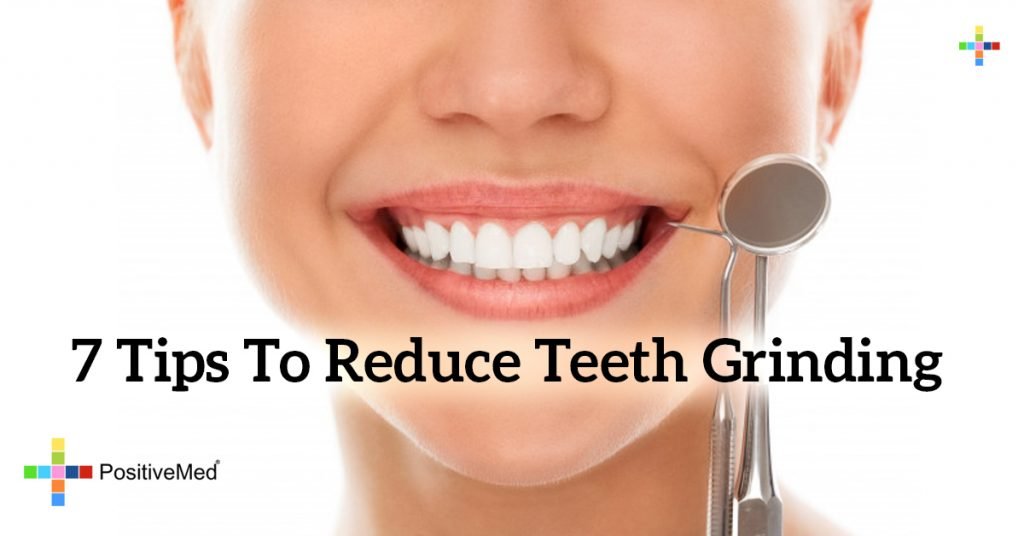
If your jaw feels sore in the morning after you wake up or you hear a popping sound, you may be clenching or grinding your teeth throughout the night. Unfortunately, this strict movement can do significant damage to your teeth, mouth and jaw. The following are 7 tips that will help prevent you from grinding your teeth.

Get Fitted with a Mouth Guard
As some of the strongest muscles in the human body, your mouth and jaw are both instrumental in allowing you to speak and chew without issue. But anxiety, anger and stress can cause your jaw to clench unknowingly, especially when you’re sleeping. Because the overworked muscles are placing excessive force on your mouth and teeth, the grinding can cause earaches, inflammation, headaches and lockjaw. Consistent wear and tear on the jaw could also lead to chips, cracks and tooth loss. Because you’re unable to control your actions while you sleep, you may need to get fitted for a mouth guard. Custom fitted with the help of your dentist, the mouth guard will take most of the brunt force away from your gums and teeth if you still grind at night.
Cosmetic Dentistry for Damaged Teeth
If teeth grinding has already caused notable damage to your teeth, a cosmetic dentist will help you get your smile back. If the tooth has been damaged by grinding, porcelain veneers or dental bonding can transform your teeth. Using cosmetic resin that adheres to the tooth and is sculpted and molded to fit, your dentist is able to match your enamel easily through dental bonding. You can also improve the functionality, appearance and form of your teeth after grinding with porcelain veneers. The thin sheet is cemented to the problematic areas of your teeth. Both are excellent options in areas where your teeth have become worn down by nightly grinding.
Limit Stress
Teeth grinding is often triggered by excessive anxiety and stress. Whether it’s a work issue, problem at school or struggles at home, find outlets that will help you relieve your stress. Practices such as yoga and meditation can prove helpful. Before you go to bed at night, relax with a warm glass of milk or hot bath. If your issues are serious, you can speak with a counselor or therapist.
Refrain from Overworking Your Jaw
Foods such as chewy candies, gum and tough meat can be hard for you to chew. If you consume the items on a regular basis you may experience increased tension in your jaw and mouth. This could lead to teeth grinding at night. Avoid the problematic items that may be causing you discomfort and pain.
Skip Caffeine and Alcohol
Caffeinated beverages such as coffee and tea may help you get a jumpstart in the morning. But it could boost your jitteriness and tension. Alcoholic beverages can also raise your teeth grinding movements at night. If you’re looking to quit grinding your teeth, skip caffeine and alcohol, especially during the latter part of the afternoon and evening.
Sleep Apnea Treatment
While the two issues are not guaranteed to mesh, many people who grind their teeth may also suffer from sleep apnea. You can seek treatment for this condition with a customized mouth guard or CPAP machine. If you still suffer, your physician may have some other recommendations.
Apply Relaxing Massage Techniques
Exercises that focus on the mouth can promote jaw relaxation. Using your hands, gently massage your face, jaw and neck areas of the body. You can also enlist the help of a massage therapist or chiropractor to help relieve upper body tension. Before you go to bed each night, you may also want to apply a hot cloth to each side of the jaw to promote relaxation before bedtime.
Teeth grinding may develop at any age. If you’re overstressed or anxious, you may be even more susceptible for this mouth damaging condition. But with the above 7 strategies, you’ll be able to find a resolution to your grinding and repair the damage that may have already occurred.






